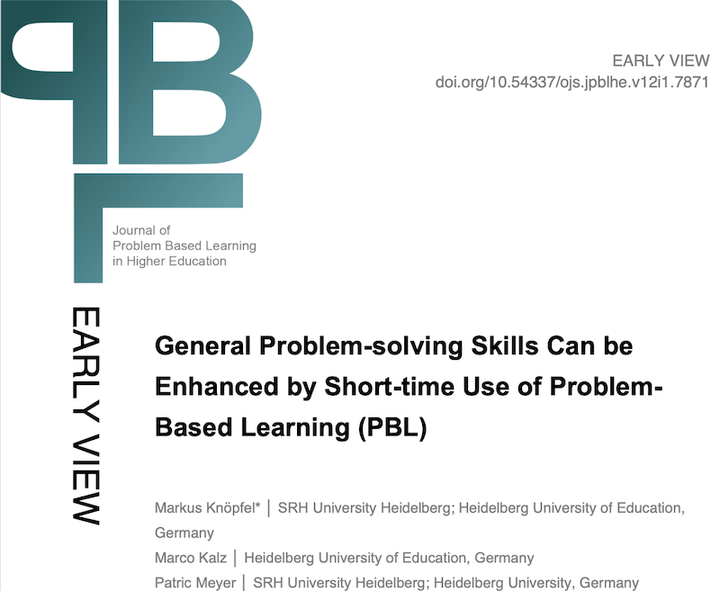General Problem-solving Skills Can be Enhanced by Short-time Use of Problem-Based Learning (PBL)

Abstract
Future students are confronted with a complex world that demands the ability to solve problems in unstructured, undefined, and unfamiliar situations. The aim of the present study was to investigate the development of problem-solving skills through the implementation of Problem-Based Learning (PBL). While previous research has primarily focused on content-related and long-term measurements when examining the effects of PBL, this study took a different approach by exploring the general increase in problem-solving skills resulting from PBL. The sample consisted of 90 second-semester students who were assessed at three different time points using three subscales of the Wilde-Intelligenz-Test I & II: analogies (AL), letter series (BR) and numerical series (ZN). The findings revealed a significant improvement in general problem-solving abilities within the PBL group. These results provide valuable insights into the impact of PBL on the development of general problem-solving skills, even within a domain-independent and short-term context. Lecturers are encouraged to consider implementing PBL in their study programs, as it equips graduates with the necessary skills to tackle the challenges of today’s dynamic and constantly changing world.
Knöpfel, M., Kalz, M., & Meyer, P. (2024). General Problem-solving Skills Can be Enhanced by Short-time Use of Problem-Based Learning (PBL). Journal of Problem Based Learning in Higher Education, 12(1). https://doi.org/10.54337/ojs.jpblhe.v12i1.7871